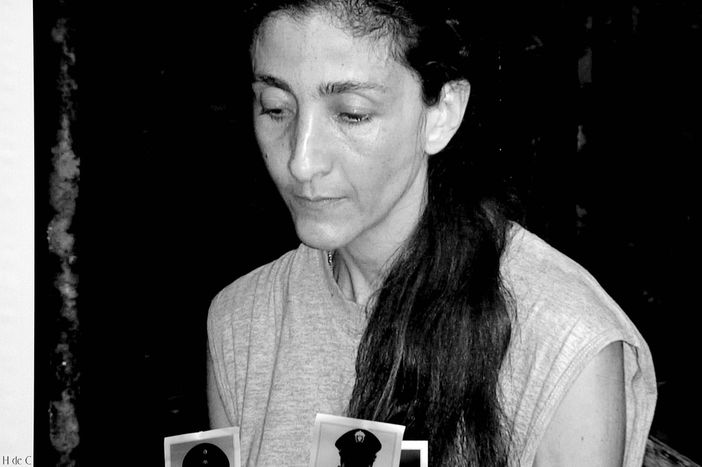
Betancourt’s release: the media picks its winners and losers
Published on
Only last February, French President Nicolas Sarkozy announced he was ready to address, “a life or death matter” and go to Colombia to free Ingrid Betancourt. But now she is released the European press and citizen journalists wonder how much credit Sarkozy and others can take for what has happened, and wonder who are the big political winners and losers of the dramatic rescue.
France: Celebrations, but Sarkozy does not escape criticism
Although many headlines in the French press quote Betancourt’s gratitude for French intervention, “merci, douce France” some media sources are critical of the French approach. Ivan Rioufol, columnist for right-wing French daily Le Figaro, claims that the French were wrong to criticize [Colombian President] Uribe’s approach to the crisis, as “The Colombian operation only succeeded in liberating hostages”.
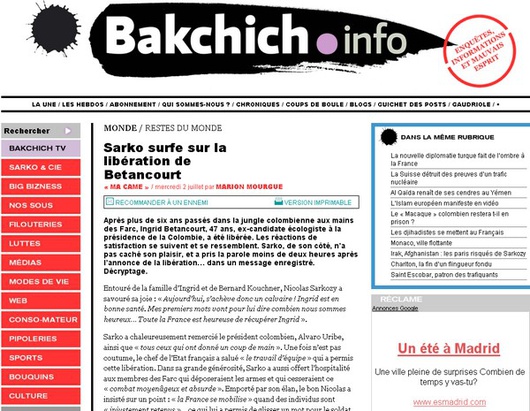 Likewise in the view of the investigative and satirical magazine, www.bakchich.info says that Sarkozy is, “surfing on Betancourt’s liberation”, criticizing the way that the French president is taking credit for an operation that was led by the Colombian government. Its analysis ends simply, “Uribe 1 Sarkozy 0”.
Likewise in the view of the investigative and satirical magazine, www.bakchich.info says that Sarkozy is, “surfing on Betancourt’s liberation”, criticizing the way that the French president is taking credit for an operation that was led by the Colombian government. Its analysis ends simply, “Uribe 1 Sarkozy 0”.
Spain: Zapatero thanked, whilst facebookers see the funny side
El País reports that President Uribe has expressed his thanks to Spanish PM Zapatero for his support during the kidnapping whilst conceding at the official press conference that in such circumstances it was “normal” to have disagreements. Meanwhile the Colombian press is supportive of their Presidents actions and call for an imminent end to FARC. Interestingly Betancourt, whilst grateful for the military intervention, has asked for respect to be given to members of the organization.
During Ingrid’s captivity a number of groups were created on Facebook calling for her release - recruiting over 70,000 members to the cause, but as is always the case, the social networking site has also been a place for satire. Groups sprung up campaigning for an exchange for Betancourt with Ségolène Royale, French first lady Carla Bruni and radical Flemish nationalist politician Bart de Weber.
Germany/Switzerland: Sarko: the risk-taking ‘joker’
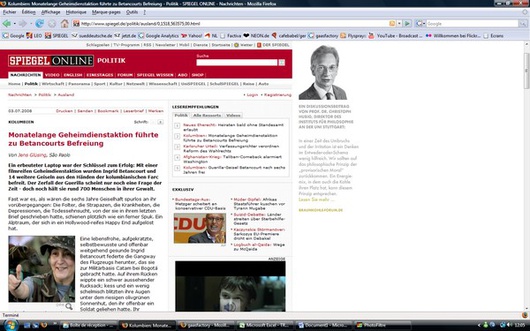 In the German-speaking media winners, losers and conflicts of interest are the order of the day. Jens Glüsing, Spiegel correspondent in São Paolo describes the top secret operation, “made for the movies”, as a success for the Colombian government, as President Uribe now has the Betancourt ‘joker’ for any future political action. In contrast Sarkozy is called the “little loser” amidst claim that Colombian government members complained about France’s ‘random’ political interventions in the crisis.
In the German-speaking media winners, losers and conflicts of interest are the order of the day. Jens Glüsing, Spiegel correspondent in São Paolo describes the top secret operation, “made for the movies”, as a success for the Colombian government, as President Uribe now has the Betancourt ‘joker’ for any future political action. In contrast Sarkozy is called the “little loser” amidst claim that Colombian government members complained about France’s ‘random’ political interventions in the crisis.
 Sarkozy will take the credit for Betancourt’s release, but Swiss daily , warns that although his, “wish to repeat a humanitarian success, like with the release of the Bulgarian nurses, seemed overpowering”, other actions – like inviting Hugo Chavez to the Elysée are somewhat in conflict with this.
Sarkozy will take the credit for Betancourt’s release, but Swiss daily , warns that although his, “wish to repeat a humanitarian success, like with the release of the Bulgarian nurses, seemed overpowering”, other actions – like inviting Hugo Chavez to the Elysée are somewhat in conflict with this.
Italy: Release has implications for women everywhere
In Italy, Conservative newspaper Il Foglio, points out that the operation was not just a success for the Colombian special forces, but also a major propaganda coup for President Uribe, who wishes to change the country’s constitution if he is elected for a third term.
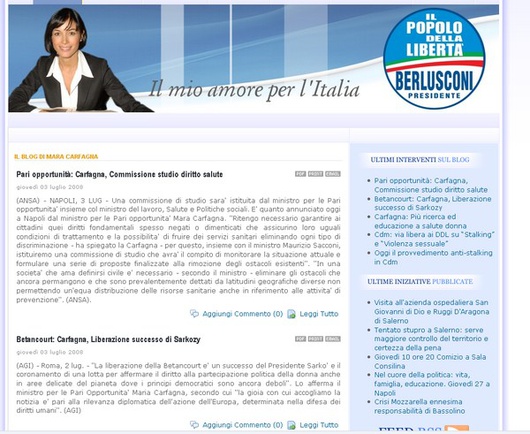 Meanwhile Mara Carfagna, the ex-model and Equal Opportunities minister in the Berlusconi government, posted on her blog that the release will have an effect elsewhere; on the popularity of President Sarkozy, but also for all women in the world who wish to participate in political life.
Meanwhile Mara Carfagna, the ex-model and Equal Opportunities minister in the Berlusconi government, posted on her blog that the release will have an effect elsewhere; on the popularity of President Sarkozy, but also for all women in the world who wish to participate in political life.
It will be interesting to see if the Italian Government agree with her position.
UK/US: A mortal blow for FARC
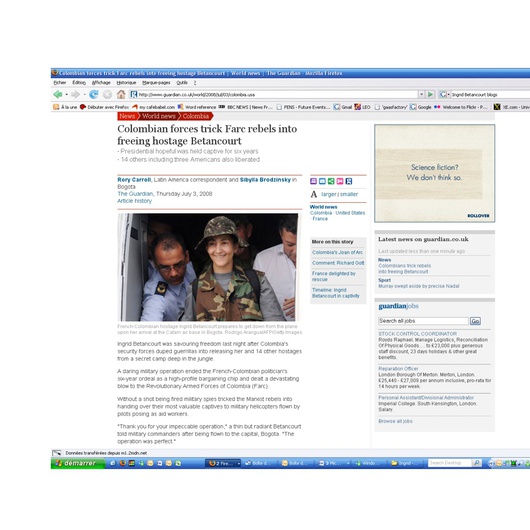 The Anglophone press speak of an “audacious” (The Times) rescue attempt, but whilst it is recognised that this is a “mortal blow” for FARC, Alegra Stratton, writing in The Guardian, warns that “a fifty year old rebel movement will not be finished in a [matter of] months”. There is also great interest as to the level of the United States’ intervention in the crisis.
The Anglophone press speak of an “audacious” (The Times) rescue attempt, but whilst it is recognised that this is a “mortal blow” for FARC, Alegra Stratton, writing in The Guardian, warns that “a fifty year old rebel movement will not be finished in a [matter of] months”. There is also great interest as to the level of the United States’ intervention in the crisis.
Meanwhile on the blogosphere, one reactive correspondent has proclaimed Betancourt to be the ‘next Nelson Mandela’, yet other observers in the UK and US have hit upon a more pertinent parallel. Presumptive Republican candidate John McCain, himself famously also held captive for six years, was according to The New York Times “briefed” on the operation in a meeting with the Colombian president on Tuesday night.
On news forums, some of the more cynical observers wonder just how much of a coincidence his visit was.



